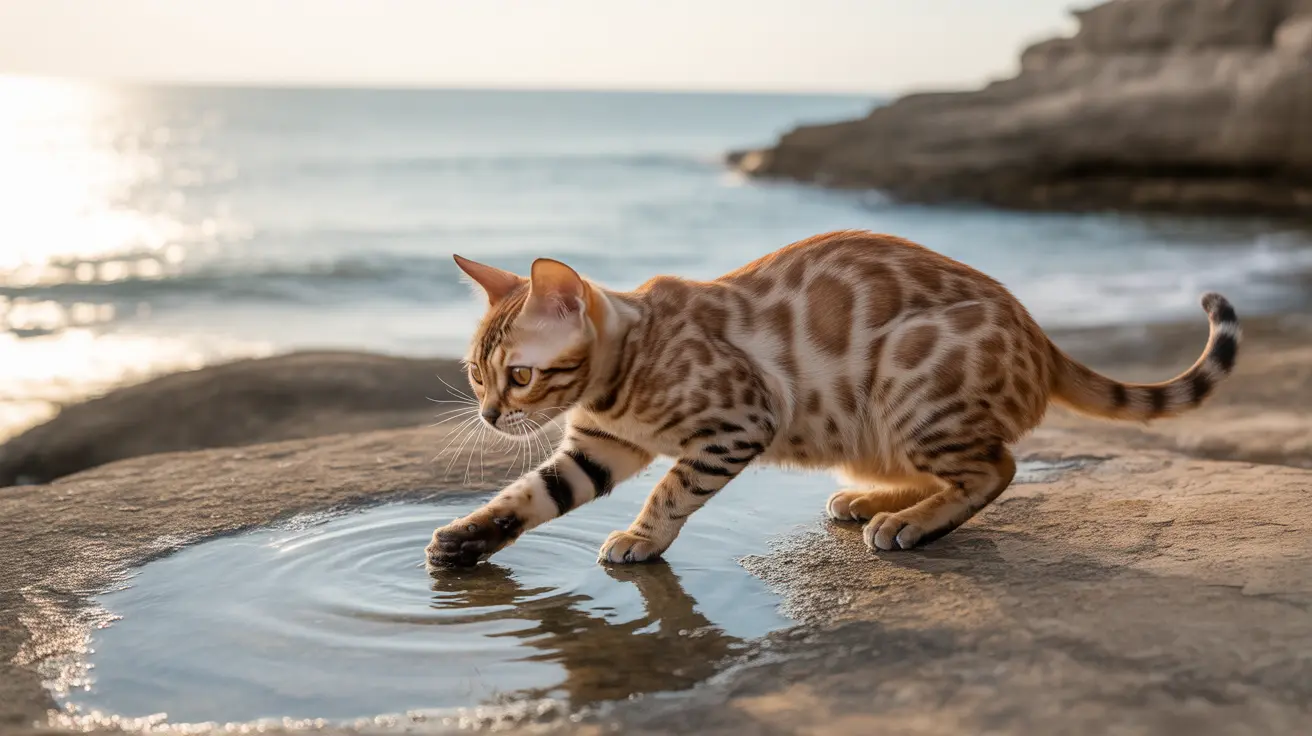The Science Behind Cats and Salt Water
Cats evolved from desert-dwelling ancestors, specifically the African wildcat, which developed specialized kidneys capable of filtering higher concentrations of salt. These efficient organs can process salt water and extract usable water while eliminating excess sodium through concentrated urine.
A typical 5-kg cat requires approximately 250ml of water daily. While their kidneys can handle salt water in emergency situations, this remarkable ability is meant to be a survival mechanism rather than a regular hydration source.
Health Risks and Warning Signs
Despite their enhanced salt-processing capabilities, cats aren't immune to the dangers of excessive salt consumption. Regular intake of salt water can lead to serious health complications, including sodium ion poisoning (hypernatremia).
Common Symptoms of Salt Poisoning in Cats:
- Excessive thirst and urination
- Vomiting and diarrhea
- Lethargy and weakness
- Loss of coordination
- Seizures or tremors
- In severe cases, coma or death
Safe Hydration Practices for Your Cat
The safest approach to keeping your cat hydrated is providing fresh, clean water at all times. Consider these proven strategies for optimal hydration:
- Place multiple water bowls throughout your home
- Use pet water fountains to encourage drinking
- Incorporate wet food into their diet
- Clean and refresh water bowls daily
- Monitor water intake, especially during hot weather
When to Contact Your Veterinarian
If you catch your cat drinking salt water – whether from a pool, ocean, or other source – monitor them closely for unusual behavior. Seek immediate veterinary care if you notice any symptoms of salt poisoning or if your cat has consumed a significant amount of salt water.
Frequently Asked Questions
Can cats safely drink salt water from pools or the ocean occasionally?
While cats can process small amounts of salt water without immediate harm, it's not recommended. A few laps from a pool or ocean typically won't cause serious problems, but regular consumption should be prevented.
What are the health risks if my cat drinks too much salt water?
Excessive salt water consumption can lead to sodium ion poisoning, causing symptoms like severe thirst, vomiting, seizures, and in extreme cases, death. Long-term exposure can also damage their kidneys.
How are cats able to process salt water when humans cannot?
Cats have highly efficient kidneys that can concentrate urine and filter out excess salt more effectively than humans, an adaptation from their desert-dwelling ancestors.
Should I provide fresh water if my cat drinks salt water sometimes?
Yes, always provide fresh, clean water. If your cat has consumed salt water, ensuring access to fresh water is crucial to help flush excess sodium from their system.
What symptoms indicate salt poisoning in cats after salt water ingestion?
Key symptoms include excessive thirst, frequent urination, vomiting, diarrhea, lethargy, loss of coordination, tremors, and seizures. If you notice these signs, seek immediate veterinary care.
Conclusion
While cats possess the remarkable ability to process salt water better than most mammals, this adaptation should be viewed as a survival mechanism rather than a regular hydration option. Always provide fresh, clean water for your feline companion and prevent access to salt water sources when possible. Understanding this unique aspect of feline physiology helps us better care for our cats while appreciating their remarkable evolutionary adaptations.






